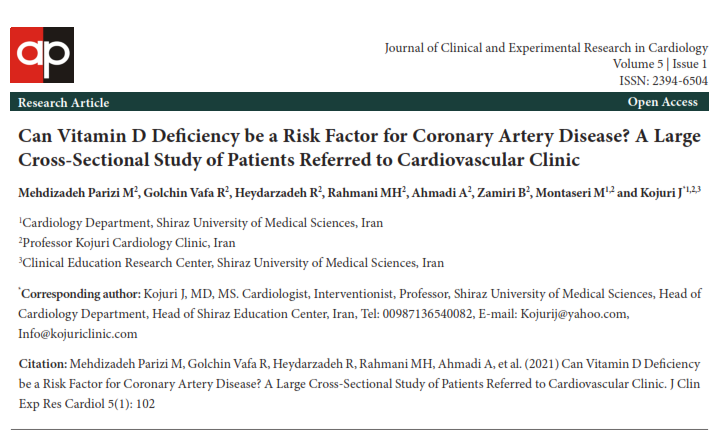
Abstract
Background: Cardiovascular disease (CVD) is one of the most common causes of mortality and morbidity worldwide.Coronary artery disease (CAD) is the most common form of CVD. To prevent CAD we need to assess the risk of futureCAD in all patients referred for cardiovascular care, but each of the several available systems for risk assessment has its ownlimitations. This study was designed to determine whether vitamin D deficiency is a potential risk factor for CAD.
Method: Between 2018 and 2020 we conducted a large cross-sectional population-based study of 4526 patients in Shiraz, Iran.All patients underwent selective coronary angiography via a radial artery approach by an expert interventional cardiologist.Serum levels of 25-hydroxy vitamin D and high-sensitivity C-reactive protein (hs-CRP) were measured in all patients.
Results: Mean vitamin D level was lower in patients with significant CAD (27.2±14.8) than in patients with non-significantCAD (29.5±14.8). The difference was statistically significant (p<0.001). There was no correlation between vitamin D and hsCRPlevels(rho=0.04,p=0.204). VitaminD deficiencywasmorefrequentin men(2499, 70.4%) thanwomen(1486, 58.6%).Thisdifferencewasstatisticallysignificant(p<0.001).
Conclusion: Our findings show a significant association between vitamin D deficiency and the prevalence of CADindependent of hs-CRP level, and suggest a correlation between vitamin D levels and the severity of CAD. In addition, mean25-hydroxy vitamin D level was lower in men than in women.(Clinical trial.gov registration number: NCT04651101)
